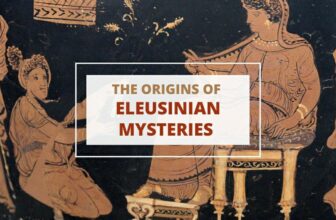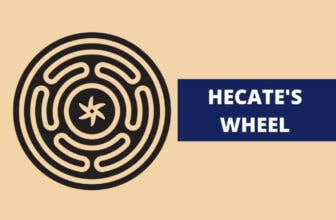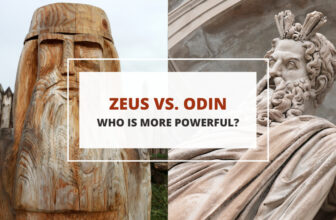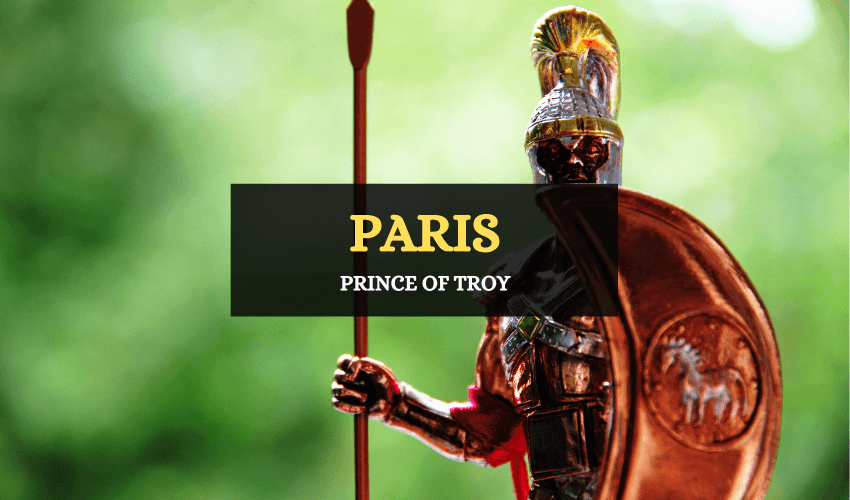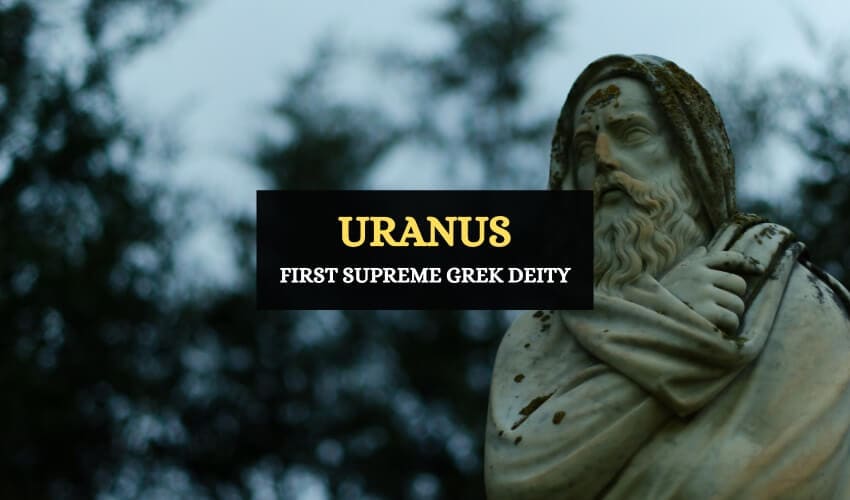
Table of Contents
Uranus is important in Greek mythology as the first supreme deity and grandfather of Zeus and the Olympians, whose overthrowal marks the start of the Titan rule. Here’s a closer look at his story.
Who Was Uranus?
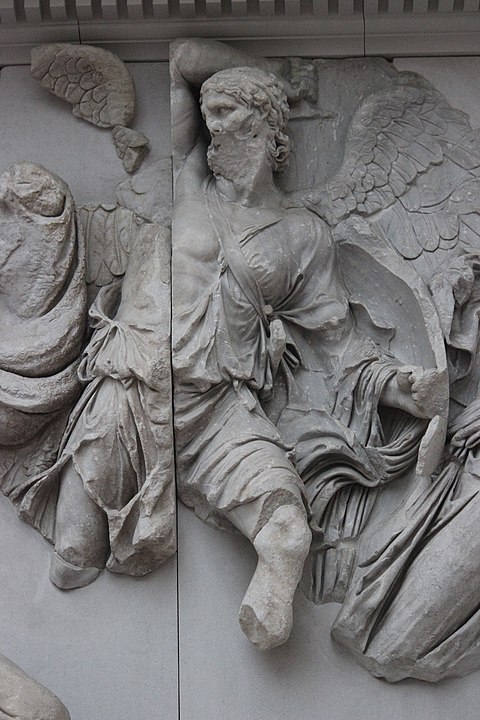
Uranus was the son of Gaia, the primordial goddess of the earth. After Gaia was born, she bore Uranus, the primordial god of the sky, the personification of the sky on earth, and the ruler of the universe before the times of the Titans and the Olympians. His siblings include Pontos, who was the personification of the sea, and the Ourea, primordial gods of the mountains. Gaia bore her children without a father, which means that Uranus only had one parent.
“However, in some later myths, there are suggestions that Uranus may have had a father – Aether, the personification of the Upper Sky.
Uranus and Gaia
Uranus and Gaia married, and together they had about eighteen children. The most outstanding among them were the Titans who, led by Cronus, would eventually take control of the universe. They would have several more after Uranus’ castration.
Uranus, however, hated his children and wanted the fertile Gaia to stop giving birth. For this, he took their children and imprisoned them in Gaia’s womb. That way, she would not be able to have any more children, and he could put away those he despised.
By doing this, Uranus caused Gaia great pain and distress, so she started looking for ways to free herself from his oppression.
Uranus’ Castration
Gaia plotted against Uranus with the Titans. She built an adamantine sickle and looked for the help of her sons to challenge Uranus’ rule. Cronu stood up to the task, and together they planned an ambush to attack Uranus. Finally, they had their chance when Uranus tried to lay in bed with Gaia. Cronus used the sickle and castrated him.
From the blood that sprang out of Uranus’ mutilated genitals, the Erinyes and the Giants were born. Some sources say that Aphrodite was born from Uranus’ genitals after Cronus threw them into the sea. By castrating Uranus, Chronos separated the heavens and the earth which had been one up to that point, and so he created the world as we know it.
Cronus became the all-powerful ruler of the universe, and Uranus remained in the skies from then onwards. Before leaving the earth, Uranus cursed Cronus with the prophecy that he would suffer the same fate as Uranus had – meaning that his son would dethrone him. Years later, Zeus would fulfill this prophecy with the Olympians.
Uranus’ Associations
Outside Greek mythology, several deities share similar myths with those of Uranus. Some sources even propose that the idea of Uranus as a deity derives from the Egyptian god of the sky given the fact that in classical Greek worshipping there was no cult for Uranus. The sickle also refers to a probable pre-Greek Asian origin.
In ancient Greece, people believed that the sky was a gigantic bronze dome. This comes from the idea of Uranus’ depictions as he covered the whole world with his body. Uranus also appears in other myths as the witness of oaths since, as the sky itself, he was omnipresent and could attest to every promise made under his domain.
The name ‘Uranus’ for the planet discovered by William Herschel was suggested by Johann Bode in alignment with the mythological names of other planets, named after the Greek god of the sky.
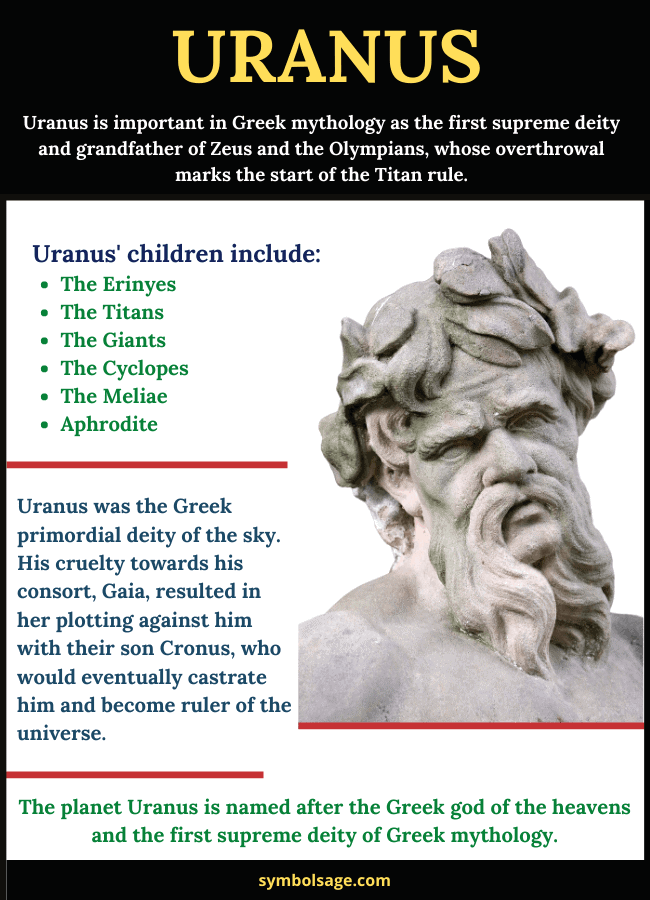
Descriptions and Symbolism
Uranus is not only the primordial god of the sky in Greek mythology but also embodies the infinite expanses of the universe. In classical depictions, Uranus is presented as an entity of immense strength and power, capturing the heavens’ profound and immeasurable scale. As the personification of the sky, Uranus also signifies the celestial mysteries and the boundless unknown, sparking awe and curiosity in both mortals and immortals alike.
Uranus God Facts
Uranus is neither, as he’s the primordial god of the sky.
Uranus’ Roman equivalent is Caelus.
Uranus’ consort is Gaia, goddess of the earth and his mother.
Uranus had several children including the Titans, the Cyclopes, the Giants, the Erinyes, the Meliae and Aphrodite.
Early myths state that Uranus was born of Gaia alone, however, later myths say he had a father, Aether.
There’s no specific reason given for this. It appears to be an erratic and irrational choice. Interestingly, his son Cronus and grandson Zeus would go on to do the same to their wives and children.
To Wrap Up
Besides the story of his castration, Uranus’ active role in Greek mythology was relatively small. Yet, from him sprang a variety of figures who would mark an era and a culture. Uranus’ significance goes far beyond his deeds on earth and rests on the legacy he left through his offspring.




